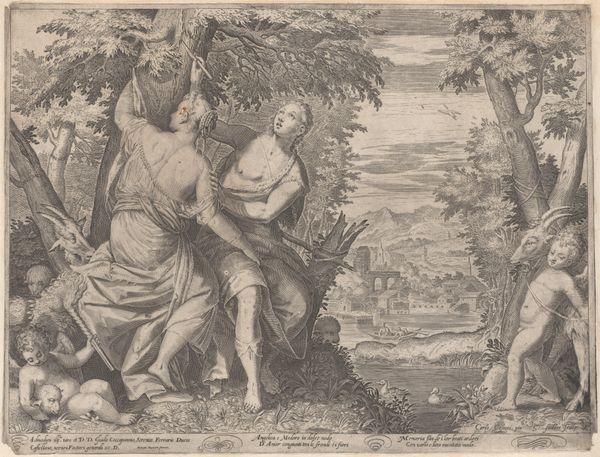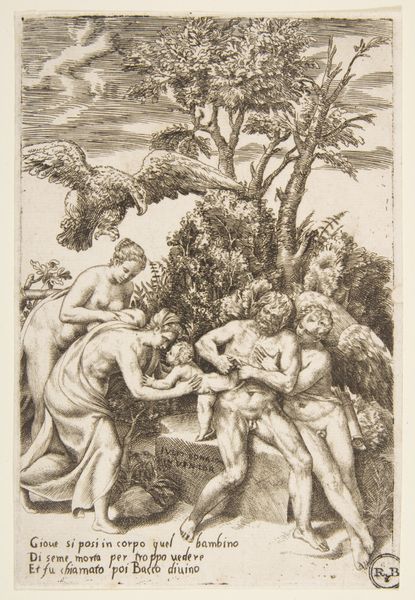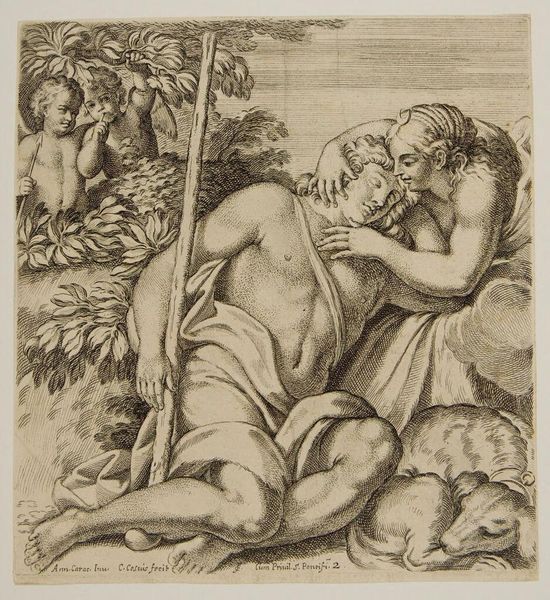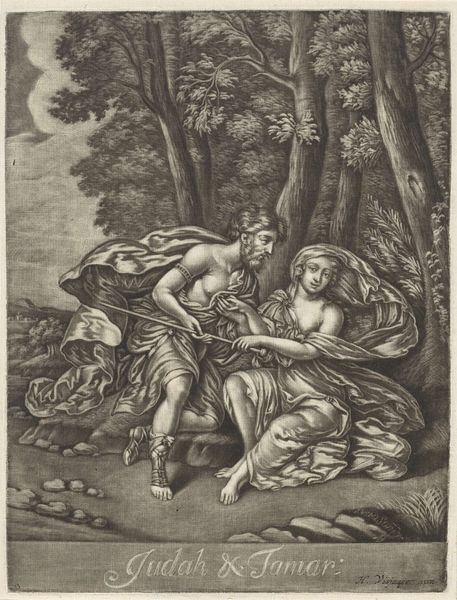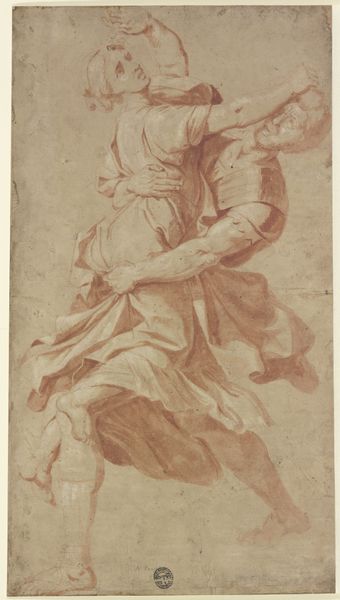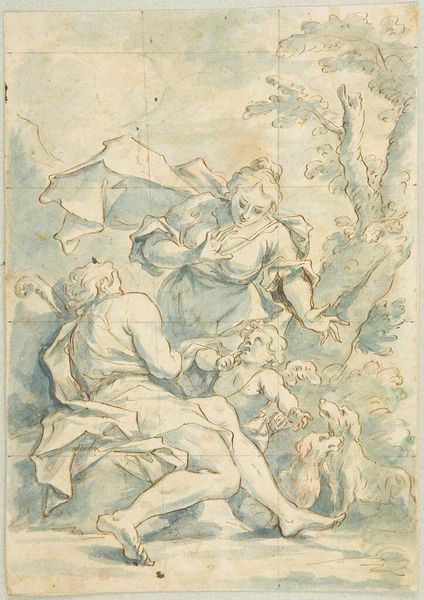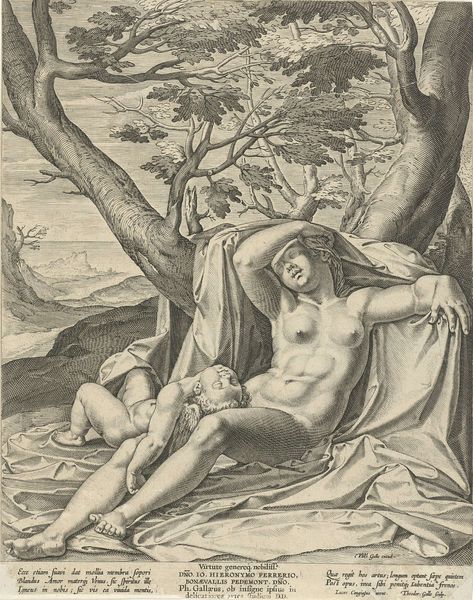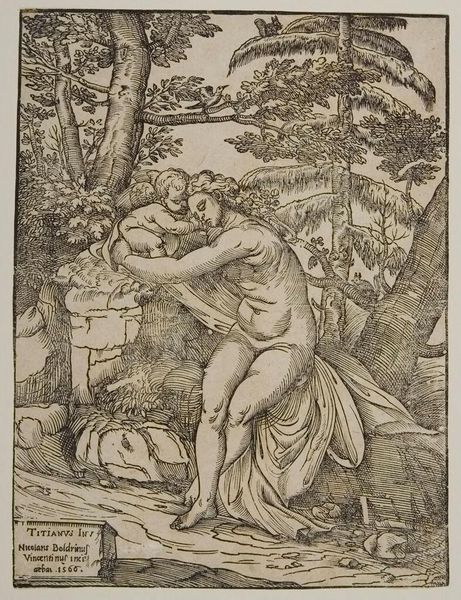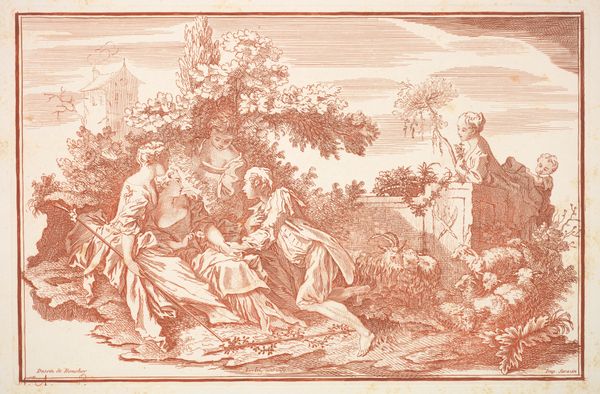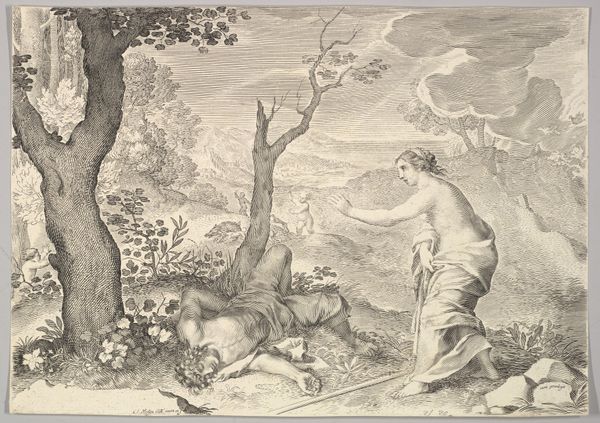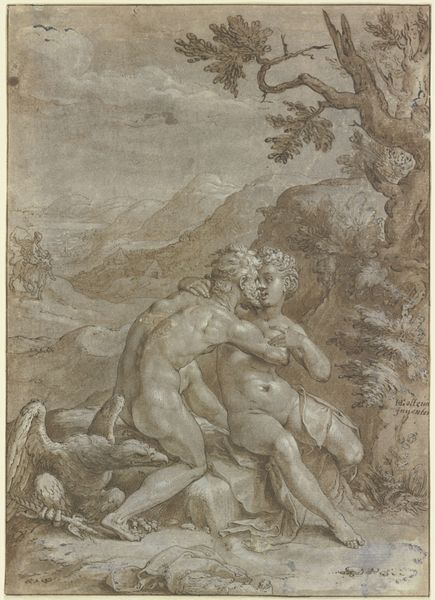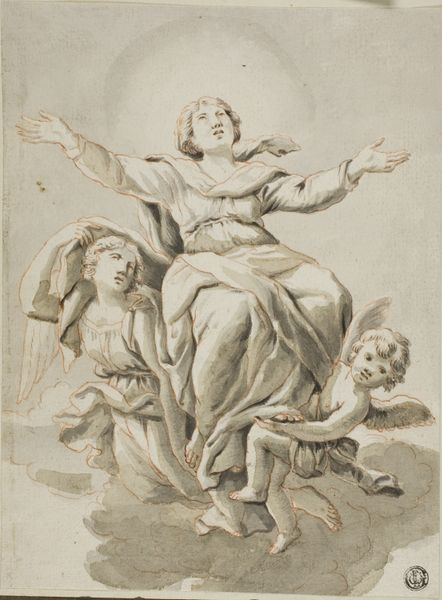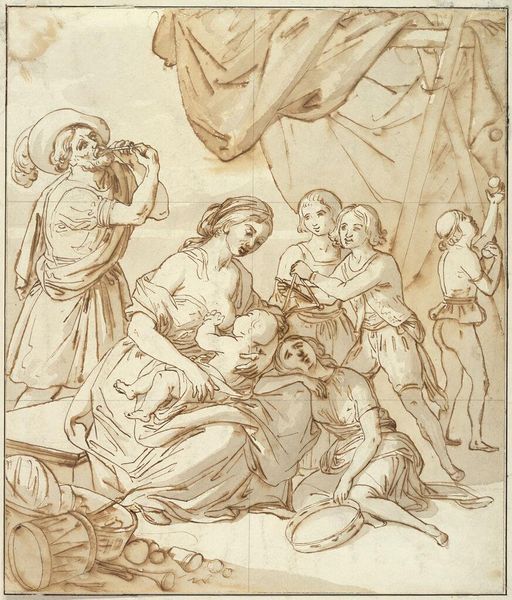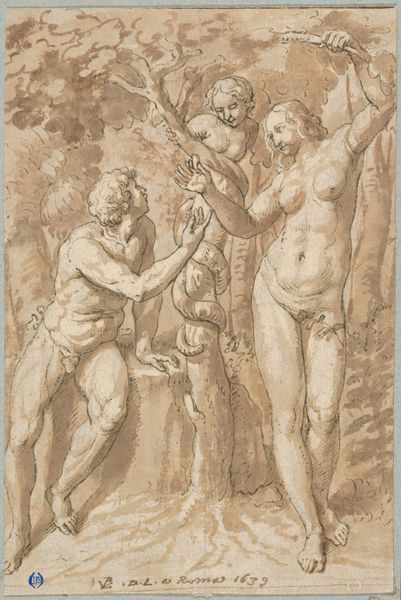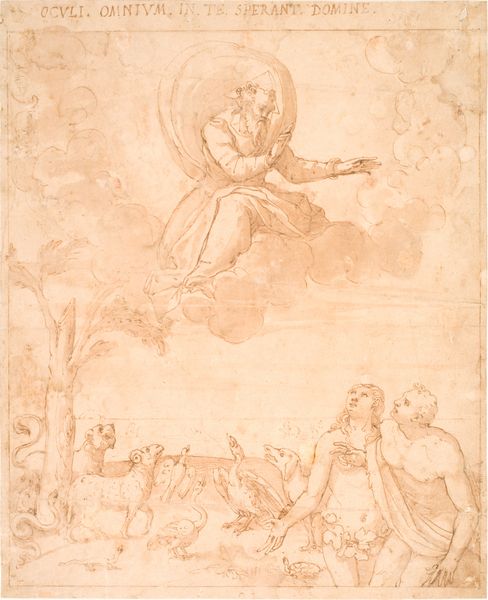
panel, painting, oil-paint
#
panel
#
painting
#
oil-paint
#
landscape
#
figuration
#
oil painting
#
mythology
#
history-painting
#
italian-renaissance
#
early-renaissance
Dimensions: 29.5 x 20 cm
Copyright: Public domain
Antonio del Pollaiolo painted "Apollo and Daphne," likely in the late 15th century, using oil on wood. The eye is drawn to the immediate scene where Apollo grasps at Daphne whose fingers are growing into branches. Pollaiolo uses line and form to capture a moment of dramatic transformation. The composition is structured around dynamic diagonals, emphasizing movement and tension as Apollo lunges forward. Daphne's upward reach is echoed by the trees that visually represent her metamorphosis. The artist uses a limited palette, setting the cool blues and greens of the landscape against the warmer tones of the figures' skin and clothing. The painting operates on a semiotic level, where the figures serve as signs within a larger narrative. Apollo, the pursuer, embodies desire and frustration, while Daphne’s transformation symbolizes resistance and escape. The materiality of the oil paint allows for a detailed rendering of textures, from the fine strands of Daphne's hair to the rough bark of the emerging tree. This interplay of form and texture underscores the painting's thematic concerns with change and transformation. Ultimately, the painting serves as a powerful meditation on the complex interplay between desire, identity, and the natural world.
Comments
No comments
Be the first to comment and join the conversation on the ultimate creative platform.
